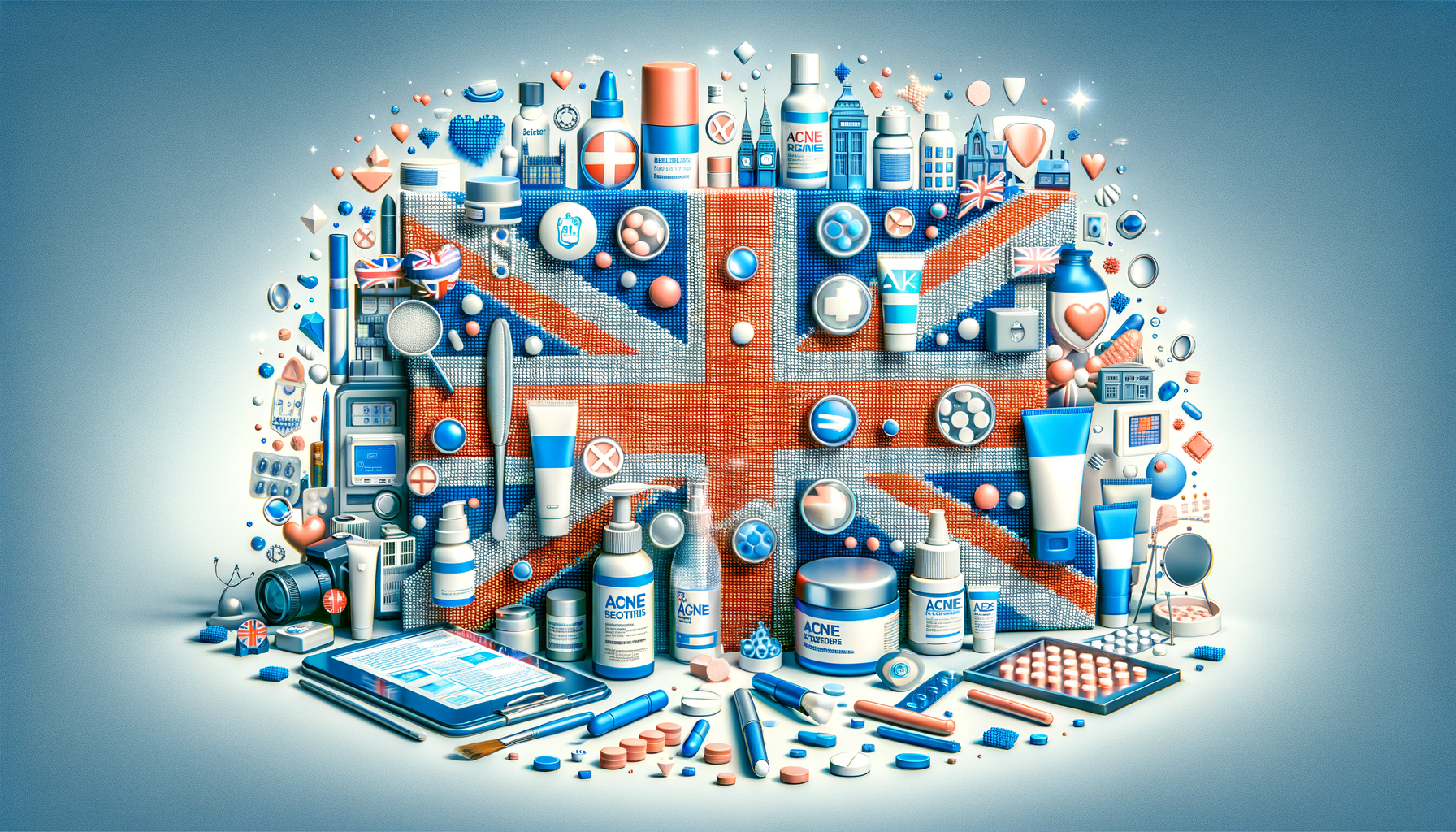Understanding Acne: A Common Skin Concern
Acne is a prevalent skin condition that affects individuals of all ages, predominantly during adolescence. In the UK, it is estimated that 80% of people aged 11 to 30 are affected by acne at some point. This skin condition is characterized by pimples, blackheads, and cysts, primarily on the face, back, and shoulders. The causes of acne are multifaceted, including hormonal changes, genetics, and lifestyle factors. Understanding these underlying causes is crucial in finding effective treatment solutions. Hormonal changes, particularly during puberty, pregnancy, or menstrual cycles, can lead to an increase in oil production in the skin. This excess oil, combined with dead skin cells, can clog pores and lead to acne. Additionally, genetic predisposition can play a role, as those with a family history of acne are more likely to experience it themselves.
Over-the-Counter Solutions: Accessible and Affordable
For those seeking immediate relief from acne, over-the-counter (OTC) solutions are a popular choice in the UK. These products are readily available in pharmacies and supermarkets, offering a convenient option for many. Common OTC treatments include topical creams and gels containing benzoyl peroxide, salicylic acid, or alpha hydroxy acids. Benzoyl peroxide is known for its ability to reduce bacteria and dry out excess oil, making it effective for mild to moderate acne. Salicylic acid, on the other hand, helps to unclog pores and reduce inflammation. When choosing an OTC product, it is essential to consider your skin type and the severity of your acne. While these products can be effective, they may also cause dryness or irritation, particularly for those with sensitive skin.
Prescription Treatments: Tailored Solutions from Professionals
When OTC treatments are not sufficient, seeking professional advice can lead to more tailored solutions. Dermatologists in the UK can prescribe a range of treatments, depending on the severity of the acne. Common prescription options include topical retinoids, antibiotics, and oral medications. Topical retinoids, derived from vitamin A, work by promoting cell turnover and preventing the clogging of hair follicles. Antibiotics, either topical or oral, can reduce bacteria and inflammation. For severe cases, oral medications such as isotretinoin may be recommended. This powerful drug is known for its ability to reduce oil production and has been highly effective for many, although it comes with potential side effects that require careful monitoring by a healthcare professional.
Natural Remedies: Exploring Alternative Approaches
For those interested in a more holistic approach, natural remedies offer an alternative to traditional treatments. In the UK, there is a growing interest in using natural ingredients to combat acne. Tea tree oil, known for its antibacterial properties, is a popular choice. It can be applied directly to the skin to reduce bacteria and inflammation. Another natural remedy is aloe vera, which is celebrated for its soothing and anti-inflammatory effects. Honey, with its natural antibacterial properties, can also be used as a face mask to help clear acne. While natural remedies can be effective for some, it is important to note that they may not work for everyone, and results can vary.
Professional Procedures: Advanced Solutions for Persistent Acne
For persistent acne that does not respond to other treatments, professional procedures may be an option. In the UK, dermatologists offer a range of advanced treatments, including chemical peels, laser therapy, and light therapy. Chemical peels involve applying a chemical solution to the skin, which helps to remove dead skin cells and unclog pores. Laser therapy targets the deeper layers of the skin to reduce oil production and bacteria. Light therapy, using blue or red light, can also help to reduce inflammation and bacteria. These procedures can be highly effective but are typically more expensive and may require multiple sessions for optimal results.
Conclusion: Finding the Right Acne Treatment for You
In conclusion, exploring the various acne treatment options available in the UK reveals a wide array of solutions, each with its own benefits and considerations. Whether you opt for OTC products, prescription treatments, natural remedies, or professional procedures, the key is to find a solution that suits your individual needs and skin type. Consulting with a dermatologist can provide valuable guidance and ensure that you are on the right path to clearer skin. Remember, patience and consistency are crucial, as finding the right treatment can take time. With the right approach, achieving healthy, acne-free skin is possible.




Leave a Reply